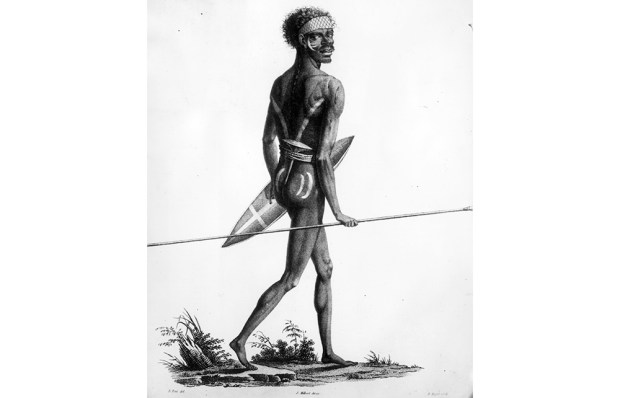Almost exactly 50 years before James Cook’s first encounter with the Gweagal and Gameygal peoples on the shores of what we now call Botany Bay, another English sea captain claimed to have met with two other native populations at a place which his ship’s log records as ‘Latitude 30 degrees 2 minutes south’ and which your car’s GPS would locate a thousand or so kilometres to the north-east of what we now call Perth. We know this account to be untrue in part because the author, oblivious to the existence of the vast Southern landmass which Europeans wouldn’t discover until after his death, describes this place as being not a settlement in the desert, but an island in the Indian Ocean. Many of his contemporaries, on the other hand, would not have smelled a rat until he described the indigenous people he met on this island as being six inches tall. But this did not stop Gulliver’s Travels knocking Robinson Crusoe off the top of the C18th best-seller chart. Indeed, contemporary readers would have seen the diminutive stature of the inhabitants of Gulliver’s first port of call as being inversely proportional to their role in one of the novel’s principal satirical conceits. Would have had no trouble, that is, in recognising the Lilliputians’ and Blefuscudians’ longstanding casus belli – a disagreement over which way up boiled eggs should be eaten – as being analogous to the religious sectarianism which was still polarising the British establishment – and much of British society – two hundred years after the Reformation. By the middle of the 18th century, the fusion of Enlightenment thinking with Magna Carta first principles meant that the British, unlike some of their continental neighbours, could express dissent without fear of being burnt alive or beheaded. But for a very long time disagreements over how people should be governed were no less binary than their denominational options. The parliamentary system – or at least the part of it to which you could be elected – was of necessity adversarial, and if you wanted a career in it you had to choose which team to be on: Tory or Whig. Georgian politics were so Manichean, in fact, that the adjectives which best summarised the philosophies of its two tribes eventually became their de facto names: the Whigs became the Liberal party and Tories became the Conservatives. For a long time afterwards, in the Commonwealth democracies which adopted the Westminster system no less than in Britain, loyalty to party was deemed as important as loyalty to country and no less absolute. At the time Swift was writing Gulliver’s Travels, a man who described himself as being slightly Liberal or somewhat Conservative would have made as much sense as a woman who described herself as being a bit pregnant. But a hundred years later a sufficiently large number of Conservative MP’s found themselves so sympathetic to the Liberal point of view on so many issues that they formed the breakaway Reform party, and since then the dominant tribes of most Commonwealth countries have become broader and broader churches. Thus, in Australia, we now talk with no sense of contradiction about conservative factions in the state and federal Labor parties, and progressive factions and figures in the Libs and Nationals. But in an era when even gender is regarded as a matter of spectrum it is no longer acceptable to aggregate political opinion with a few convenient labels. There was a time, for example, when a lot of Speccie readers would have been happy to describe themselves as small c conservatives. I was one of them. This indicated that while I might toe the leadership line on things like defence, the economy and immigration, I might think differently about things like same-sex marriage, assisted dying and abortion. But that’s a bit of a mouthful and its pretty vague, too. So from now on I have decided to call myself a Caspian conservative, the Caspian being one of the world’s smallest seas, and to apply the same maritime classification to all right-of-centre political figures. This makes Mark Latham and Tony Abbott, respectively, Caribbean and Mediterranean Conservatives, Pauline Hanson a Black Conservative, Cory Bernardi and Barnaby Joyce respectively South China and Coral Conservatives, and Scott Morrison a Dead Conservative. And Malcolm Turnbull? Well, obviously Malcolm would be a Marmara Conservative. The Marmara? A land-locked middle eastern backwater so small and brackish that most cartographers believe it should never have been called a sea.
Got something to add? Join the discussion and comment below.
You might disagree with half of it, but you’ll enjoy reading all of it. Try your first month for free, then just $2 a week for the remainder of your first year.














